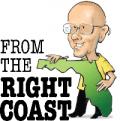
Another session of the Florida Legislature is history. After decades of watching them roll by, you begin to wonder if anything ever changes.
Since it has been a long time since I sat through sessions on a daily basis, I called upon an old-timer who knows the ropes better than I ever did.
Jon Shebel and I attended the same high school in the '50s. After graduation he went into the Marines and fought in Vietnam. I didn't see him again until the early 1970s when he was the chief lobbyist for Associated Industries of Florida, replacing the venerable Jack Lee, and I was a reporter for the Jacksonville Journal, covering the Legislature.
He agrees there are major differences in the Legislature.
Democrats were in control then. But then, as now, it was more about liberals and conservatives than party.
Also, the era of long-term service is over. Term limits changed everything.
“The worst thing that has happened is term limits,” Shebel said.
He notes that there really were not many legislators who had multiple terms but the ones who did last were valuable. The institutional knowledge and know-how that people like Verle Pope and Dempsey Barron provided is lost today, which gives the legislative staff way too much influence.
But spending remains the main issue.
Liberals have the ability to find an infinite number of “needs” to spend Other People's Money (OPM).
It was ever thus.
In 1975, there were 8 million people and politicians spent $9 billion.
In 2015, we have 20 million people and the politicians will spend $59 billion of OPM -– 2.5 times as many people, seven times as much spending.
That figure would be higher this year except that the governor and Legislature decided to let residents keep $430 million of their own money, which was terribly annoying to liberals.
One constant is the same spending fights over the environment and education.
Over the past 40 years, spending of OPM on public schools has soared. Yet, despite liberal claims that this would produce better outcomes, it was not until reforms unrelated to spending began some 15 years ago that outcomes began to improve.
Legislators also have become more discriminatory about the environment. A land-buying frenzy that began in the early days of the environmental movement is turning to more thoughtful use of available funds to produce real results.
Shebel said that in the past few years “legislators are going, 'Wait a minute, do we really want to own every piece of land in Florida and take it off local tax rolls?' ”
It is not only the government ownership of land that is a problem but the restrictions placed on private property by government, Shebel said.
Legislators also have gotten smarter about grabbing money thrown at them by the federal government.
They nixed an expansion of Medicaid, opting instead to provide more money to Florida hospitals for treatment of the indigent.
The veteran lobbyist, who left AIF in 2006 and ran its insurance company until it was sold in 2010, says good things get done eventually, through perseverance. For example, legislators have taken the sales tax off machinery, which AIF was seeking 40 years ago.
Yet, Shebel says. “I'm struck, even by watching from a distance, how much it is the same.”
Lloyd Brown was in the newspaper business nearly 50 years, beginning as a copy boy and retiring as editorial page editor of the Florida Times-Union in Jacksonville. After retirement he served as a policy analyst for Florida Gov. Jeb Bush.


